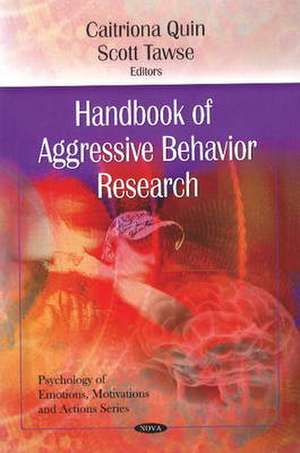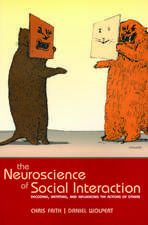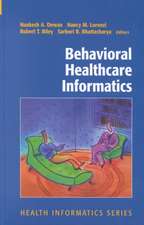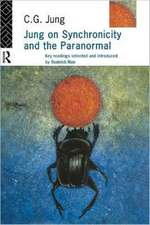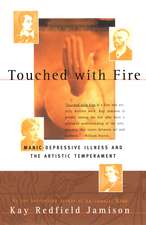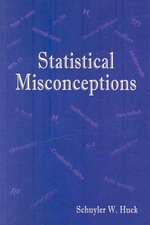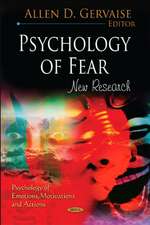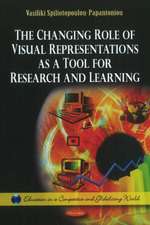Handbook of Aggressive Behavior Research
Autor Caitriona Quin, Scott Tawseen Limba Engleză Hardback – 4 mai 2010
Preț: 1943.57 lei
Preț vechi: 2658.88 lei
-27% Nou
Puncte Express: 2915
Preț estimativ în valută:
371.90€ • 405.24$ • 313.38£
371.90€ • 405.24$ • 313.38£
Carte disponibilă
Livrare economică 02-16 aprilie
Preluare comenzi: 021 569.72.76
Specificații
ISBN-13: 9781607415831
ISBN-10: 1607415836
Pagini: 587
Ilustrații: tables & charts
Dimensiuni: 188 x 263 x 37 mm
Greutate: 1.33 kg
Ediția:New.
Editura: Nova Science Publishers Inc
Locul publicării:United States
ISBN-10: 1607415836
Pagini: 587
Ilustrații: tables & charts
Dimensiuni: 188 x 263 x 37 mm
Greutate: 1.33 kg
Ediția:New.
Editura: Nova Science Publishers Inc
Locul publicării:United States
Cuprins
Preface; Synergy Goes To War: An Evolutionary Theory of Collective Violence; Psychopathy and Romantic Love: Associated Neural Systems; The Stability of Aggressive Behavior toward Peers as a Predictor of Externalizing Problems from Childhood through Adolescence; How to Identify Potentially Dangerous Dogs? A Proposal for a Screening System; New Classification and Neurobiology of Aggressive Behavior; Adolescent Aggression towards Parents: Factors Associated and Intervention Proposals; The Role of Aggression in the Success of the Invasive Argentine Ant; Cyber-Bullying: The Irish Experience; Maternal Aggression, Oxytocin and Prolactin; Child Aggressive Behavior: Risk Factors, Assessment, and Treatment; Behavioral Neurobiology of Aggression: From Perception to Action; They Fight for their Mate -- MSP as a Potential Determinant of Male Dominance and Aggressiveness in Fish; Affective-Cognitive Regulation of Aggressive Behaviors; The Interactive Roles of Parental Rejection and Noradrenergic Activation on Aggression in At-Risk Youth; A Comparison of Able-bodied and Disabled Hockey Players' Perceptions and Attitudes towards the Use of Aggressive Behavior; The Role of Plasma Cortisol in Conduct Problems and Antisocial Traits in Latency-Age Girls; Anger Regulation in Negotiations; Is there Correlation between Violence, Stakes and Fair play in Sport?; Children's Automatic Categorization Of Aggression According To Gender-Based Categories; Violence Attribution Errors among Low-Risk and High-Risk Juvenile Offenders; Genetics of Human Aggression and Related Traits; Foraging Behavior and Raptorial Character in Giant Water Bug; Aggressive Behavior: Lessons from Individuals with Prade-Willi Syndrome-like Phenotype; Does Affiliative Body Contact Repair Relationships among Bottlenose Dolphins?; Why are Aggression and Violence Understood and Justified Differently within the Context of Competitive Sport?; Aggressiveness and Forgivingness; Index.
